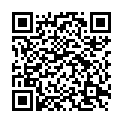|
|
|
| Module code: DFBGM401 |
|
2V (2 hours per week) |
|
2 |
| Semester: 4 |
| Mandatory course: yes |
Language of instruction:
German |
Assessment:
Written exam
[updated 04.12.2020]
|
DFBGM401 Mechanical Engineering, Bachelor, ASPO 01.10.2018
, semester 4, mandatory course
DFBME-406 (P610-0342) Mechanical Engineering, Bachelor, ASPO 01.10.2019
, semester 4, mandatory course
|
30 class hours (= 22.5 clock hours) over a 15-week period.
The total student study time is 60 hours (equivalent to 2 ECTS credits).
There are therefore 37.5 hours available for class preparation and follow-up work and exam preparation.
|
Recommended prerequisites (modules):
None.
|
Recommended as prerequisite for:
|
Module coordinator:
Prof. Dr.-Ing. Heike Jaeckels |
Lecturer:
Prof. Dr.-Ing. Heike Jaeckels
[updated 14.04.2016]
|
Learning outcomes:
After successfully completing this module, students will:
be able to apply basic knowledge of kinetics
be able to understand and calculate vibration phenomena in mechanical engineering
[updated 04.12.2020]
|
Module content:
Kinetics of a rigid body
Modelling in technical vibration theory
Vibration of linear systems with one or two degrees of freedom
Examples
[updated 04.12.2020]
|
Teaching methods/Media:
Lecture with PowerPoint presentations and and a collection of exercises
[updated 04.12.2020]
|
Recommended or required reading:
Berger : Technische Mechanik Bd. 3. Vieweg
Gloistehn : Lehr- und Übungsbuch der Technischen Mechanik Bd. 3. Vieweg
Hollburg : Maschinendynamik. Oldenburg
Holzmann : Technische Mechanik. Bd. 2, Teubner
Holzweißig et al. : Lehrbuch der Maschinendynamik. Fachbuchverlag Leipzig
Jürgler : Maschinendynamik. VDI- Verlag
[updated 04.12.2020]
|

